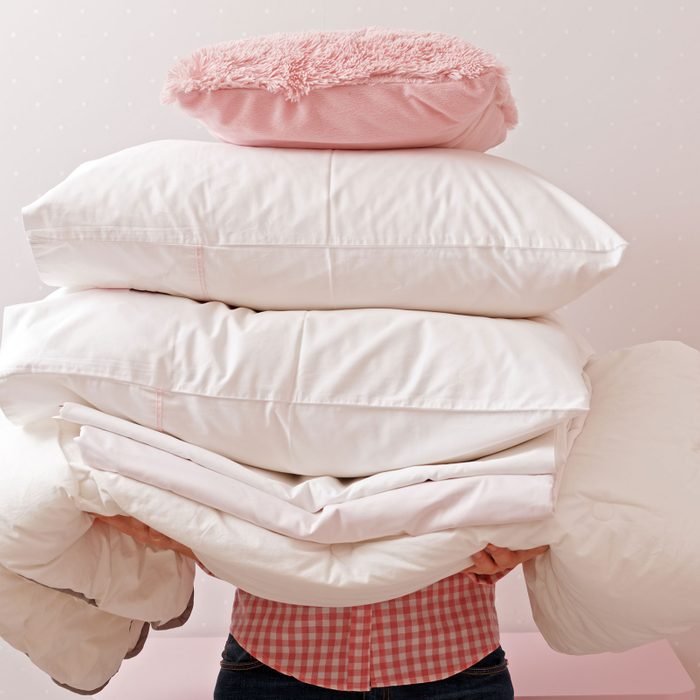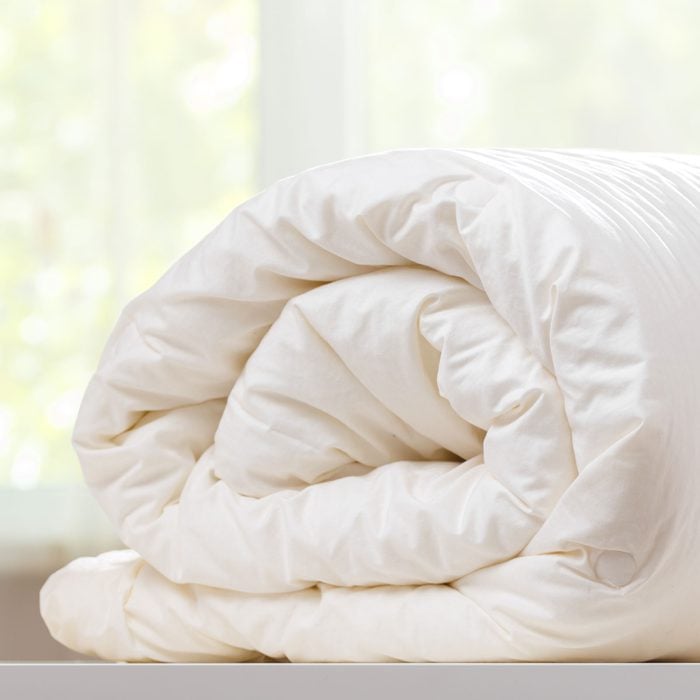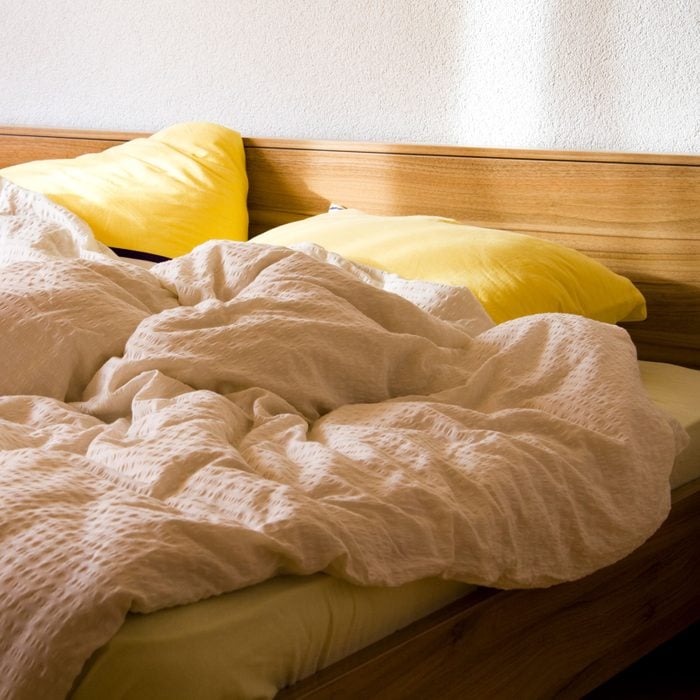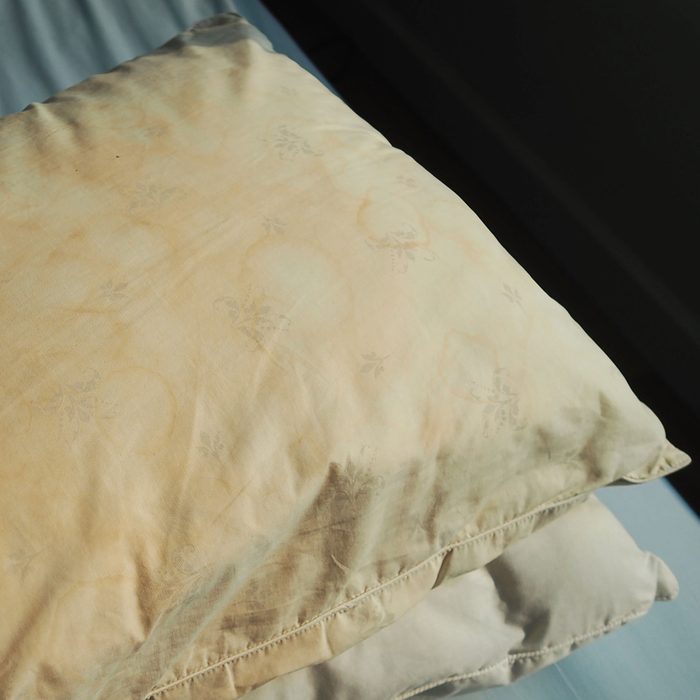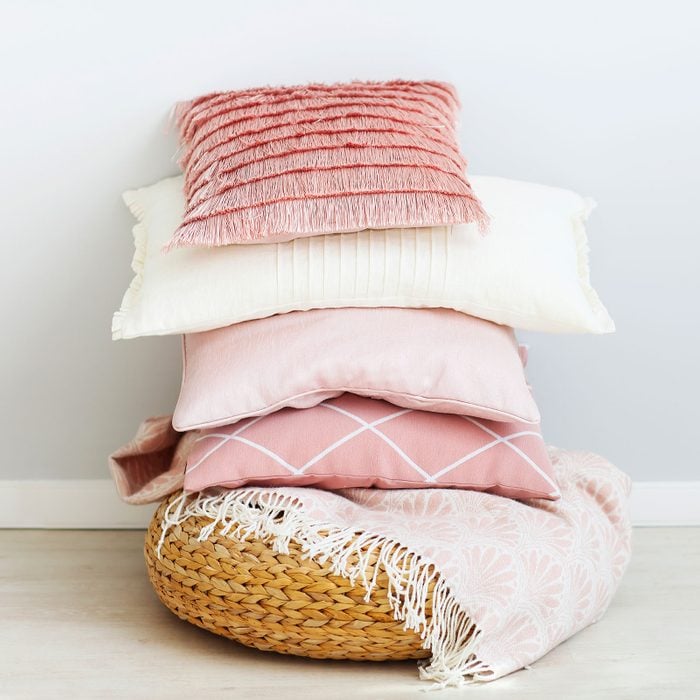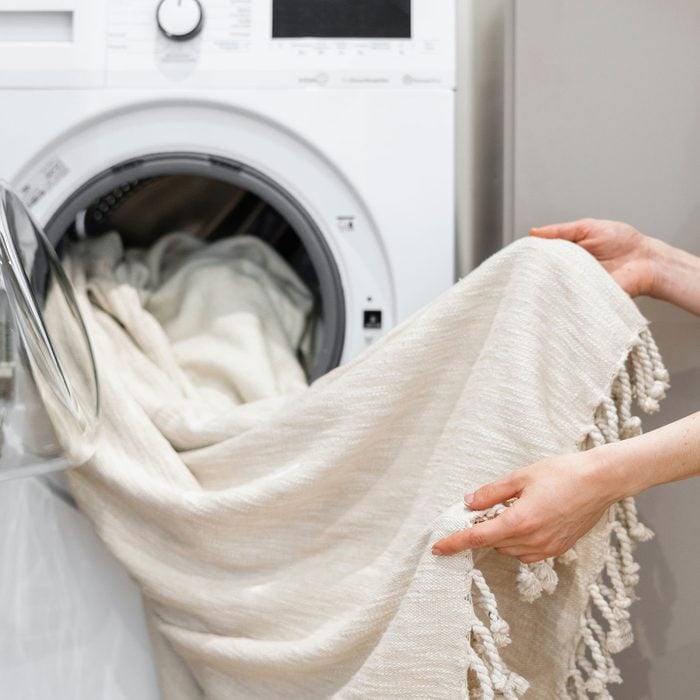Sheets and Pillowcases
Let’s start with the basics. You need to wash your sheets and pillowcases at least once a week, according to the Sleep Foundation. However, if you have pets—and especially if they sleep with you—you should wash your sheets every few days. This will help minimize allergens, which could cause sneezing or skin irritation. We also love performing a full disinfection of our sheets.
Duvet Covers
First off, if you don’t use a top sheet, you should wash your duvet cover as frequently as you would wash a top sheet (at least once a week). If you do have a top sheet acting as a barrier between your body and the duvet, wash your duvet cover about once a month.
Comforters
If you use a duvet cover on your comforter, Mulberry’s Garment Care suggests washing it a few times per year, as with the change of seasons. However, if you don’t use a duvet cover, wash it once a month, and if you have neither a duvet cover nor top sheet, wash it once a week like a sheet. This will, however, potentially speed up the wear of your pricy down comforter, so using at least a top sheet is ideal.
Pillows
Aim to wash your pillows twice a year. To be safe, always check the pillow’s tags before washing, though most are safe to either machine- or hand-wash. Additionally, if you are a heavy nighttime sweater, consider washing pillows more frequently, such as with the seasons. If your pillows have any yellow stains, here’s how to whiten them.
Decorative Pillows
If you use throw pillows on your bed and rest on those throw pillows as you would those on a couch, you need to wash them every other month. You can typically toss the whole pillows into a washing machine, but if they have delicate embroidery or heavy texture, try to wash only the pillow covers.
Extra Blankets
How often you wash extra blankets will depend on how often you use them. If the blankets are strictly decorative, aim for once a month. If you curl up under those cozy blankets nightly, wash them once a week.
Mattress
Lastly, you do, in fact, need to wash your mattress. According to mattress manufacturer Serta, you should deep-clean your mattress every few months. Use the handheld attachment on your vacuum cleaner to suck up any dirt and dust. For stains, you’ll need to scrub them with baking soda and hydrogen peroxide, being careful not to oversaturate the mattress with water, which can mildew. Check out full instructions for deep cleaning your mattress here.
